The first step to recovery is admitting you have a problem. Well, America, we have a problem. That problem is our healthcare delivery and payment system/industry.
Our healthcare system is a mess.
It is unfathomably complicated, far too expensive, and delivers results that are generally good for wealthier White people and not so good for poorer and non-White people.
This is just the high level stuff…
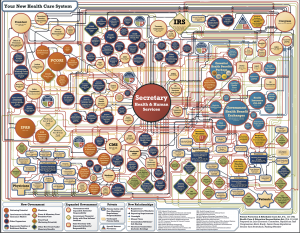
But wait, Medicare is simple…right??

Then there’s our crappy results.
Americans’ life expectancy has dropped while people in every other developed country are living longer.
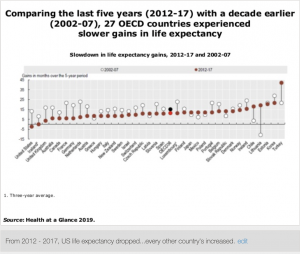
Oh, and it’s stupid expensive…Americans spend twice as much on healthcare as the average developed country.
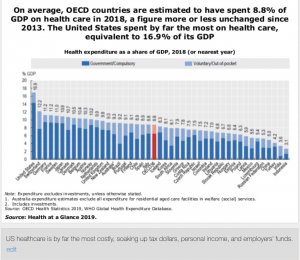
But our healthcare is great…right??
Not for Black babies.
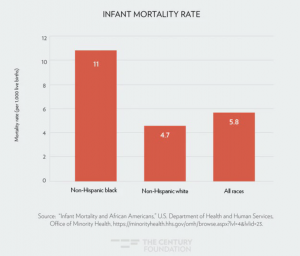
But all of us get far fewer doctor visits…
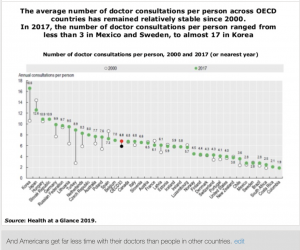
From far fewer doctors…
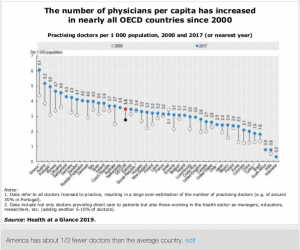
While Purdue and the rest of the opioid industry make tens of billions of dollars killing our relatives and friends
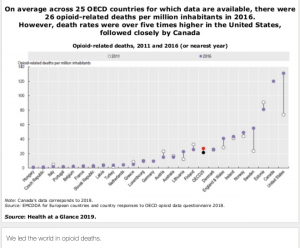
The result – we pay waaaay more than other people and die sooner.
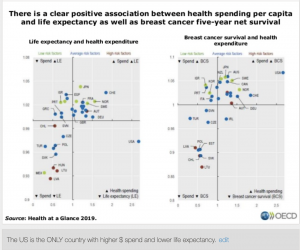
What does this mean for you?
Demand better. And do something about it.



one factor that is not considered in all of this is obesity. the US has the highest obesity rates which are likely attributing to the higher cost of medical care, more medical visits and a decrease in life expectancy. If we were able to fix the obesity rate, I would venture to say the factors listed within your article would also change. Obesity begins at an early age – we need to be teaching better eating habits, exercise, and a healthy lifestyle in our elementary schools and we would likely see a change in all of these statistics.
Excellent thought Karen – I’d add that because very few doctors are incentivized to address obesity nor are they measured on BMI, it is not surprising that this is an intractable issue. Food deserts, poverty, homelessness, and lack of funding for child health are also big contributors as you note.
be well – Joe
Likely not a popular idea, but if Kaiser Healthplan would take over all U.S. healthcare, the results would be impressive in comparison to the sobering graphs and charts shared by you, Joe. Consider the reasons for the Healthplan’s formation and introduction in the 1940’s; look at the basic tenets of this highly organized healthcare system; examine its size and the patient satisfaction; look at their medical costs (and, no, their incentives do not promote the rationing of care and they do more than the occasional organ transplant); look at their comparative administrative efficiency; look at the symbiotic organizational and financial relationship between Permanente Medical Group and Kaiser Healthplan–all incentives are aligned; look at their preoccupation with accessibility, availability and affordability of care comparisons with other systems; look at their preoccupation with prevention and health education. Kaiser has addressed quality, efficiency and allegedly the improved cost profile is simply a by-product of a quality focus. In fact, a preoccupation with quality. While a bit dated, this is a keynote David Lawrence, CEO, Kaiser presented which I believe every healthcare executive should be required to read. You may not agree with everything, but where you do disagree, share the citation supporting your objections and allegations: https://www.nap.edu/read/10358/chapter/11 (Keynote Speech: Bridging the Quality Chasm). It is interesting to see the parallels between what has been done, hasn’t been done and MUST be done to address the climate and the environment, the economy, the issues of social injustice and dramatic disparity, and our health care system (sic). May God help us all.
Thanks for the detailed commentary Stryker – much appreciated.
Reality is Kaiser Permanente is an excellent healthcare system; it does seem to struggle with cost increases that while not as high as competitors, still are appreciable. That said, I’d sign up for KP in a “heartbeat”.
be well Joe
. . .oh, and, I think Kaiser could solve that WC PPO disparity you discussed a week ago regarding the inexplicable disparity of hospital charges and resultant quality/outcomes. You are correct, not perfect, but for the employer, “one throat to choke”. . . and if anyone wonders about patient satisfaction–comparatively–look at KHP’s market penetration in CA, OR and WA. Only NFLX and AMZN prime have higher market penetration and lower churn.